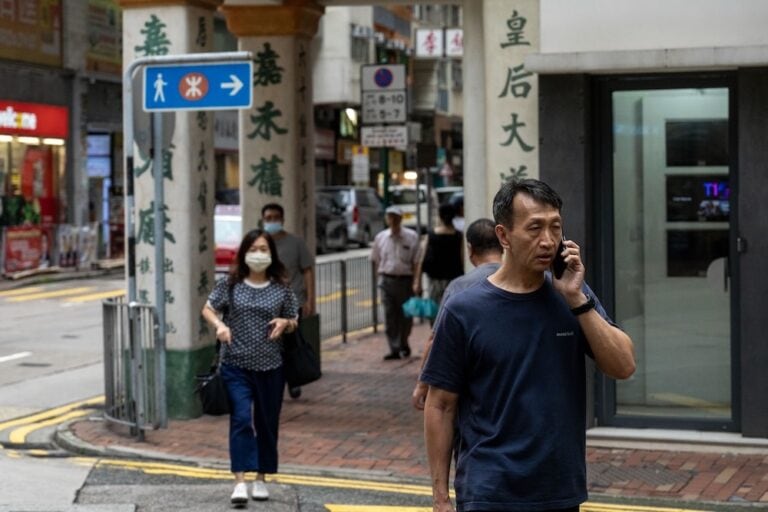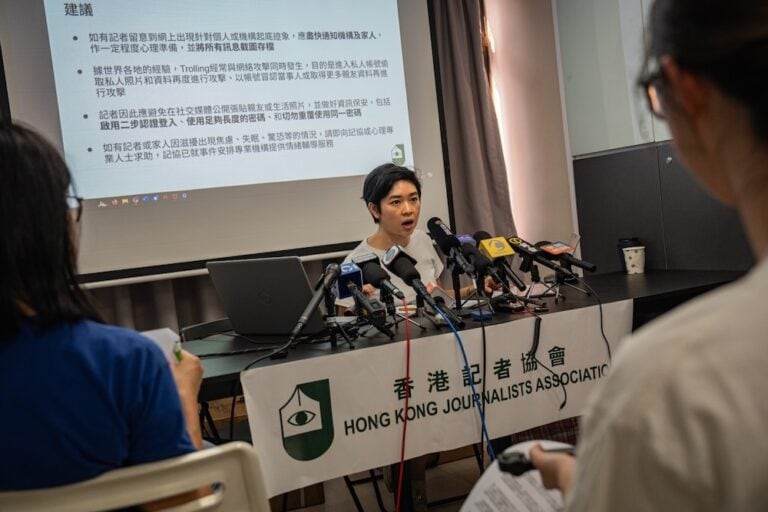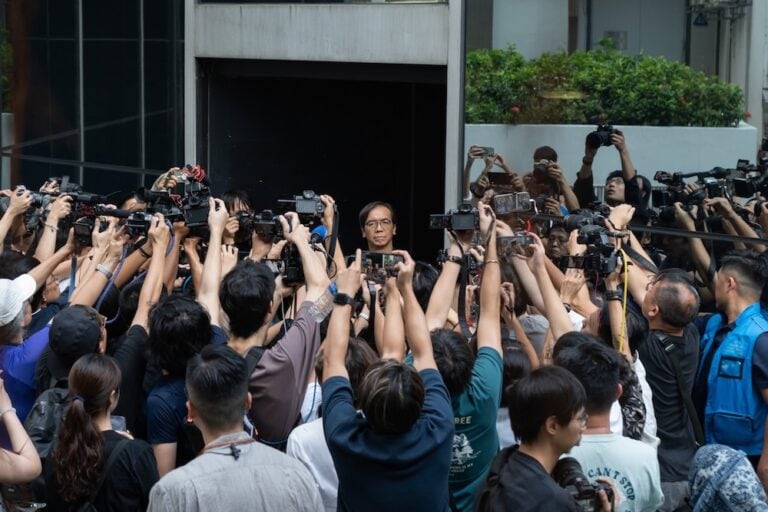(IFJ/IFEX) – The following is an IFJ media release: IFJ welcomes postponement of implementation of Hong Kong’s Article 23 The International Federation of Journalists, representing more than 500,000 journalists in more than 100 countries, has welcomed the decision of the Hong Kong Government to postpone the enactment of Article 23, involving strident new national security […]
(IFJ/IFEX) – The following is an IFJ media release:
IFJ welcomes postponement of implementation of Hong Kong’s Article 23
The International Federation of Journalists, representing more than 500,000 journalists in more than 100 countries, has welcomed the decision of the Hong Kong Government to postpone the enactment of Article 23, involving strident new national security measures.
Amid strong protest from within Hong Kong and internationally, the Chief Executive of the Hong Kong Government, Mr Tung, announced last night an indefinite delay in the implementation of the legislation. The legislation was due to be enacted on 9 July 2003.
The IFJ is deeply concerned that Article 23 of Hong Kong’s Basic Law would jeopardise basic civil liberties. The IFJ believes the article will have far-reaching consequences impacting on and restraining all citizens that collect and disseminate ideas and information, particularly journalists.
The IFJ had written to Mr Tung several times opposing the legislation, and had called on affiliates to do the same.
The IFJ praised the work of its Hong Kong affiliate, the Hong Kong Journalists’ Association (HKJA), for its substantial part in the campaign against the enactment of Article 23.
But the fight is not yet over. The legislation may still be implemented and journalists and human rights groups from Hong Kong and abroad should continue to protest the legislation, says the IFJ.
“Rest assured, we will continue to work with our affiliates to continue to put pressure on the Hong Kong Government to oppose this retrograde legislation,” said Christopher Warren, in a letter to the HKJA today.
If the Government still pushes the advancement of the article, the IFJ supports its affiliate, the HKJA, in its hope to redraft it to include the Johannesburg Principles as an integral part of the legislation. These principles claim that information and expression are only deemed a threat to national security when they incite violence or are obviously connected with the occurrence of violence. It also supports the HKJA’s calls for greater and more transparent community consultation.


